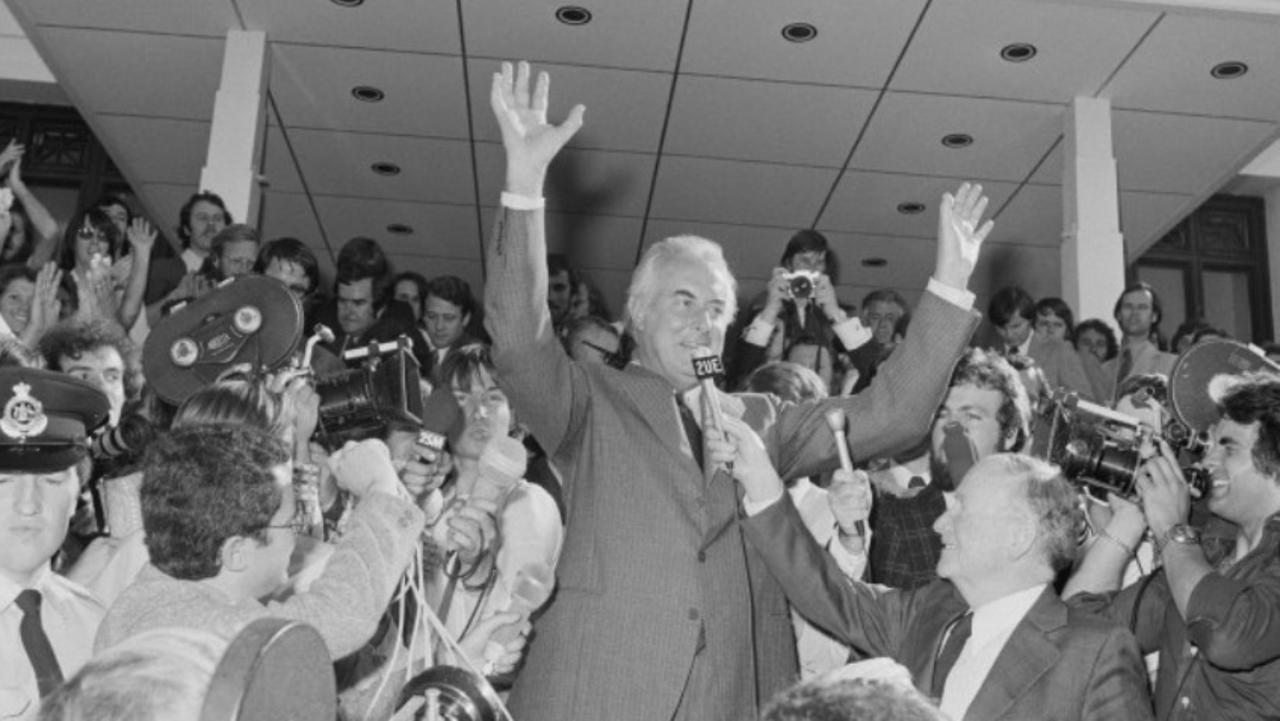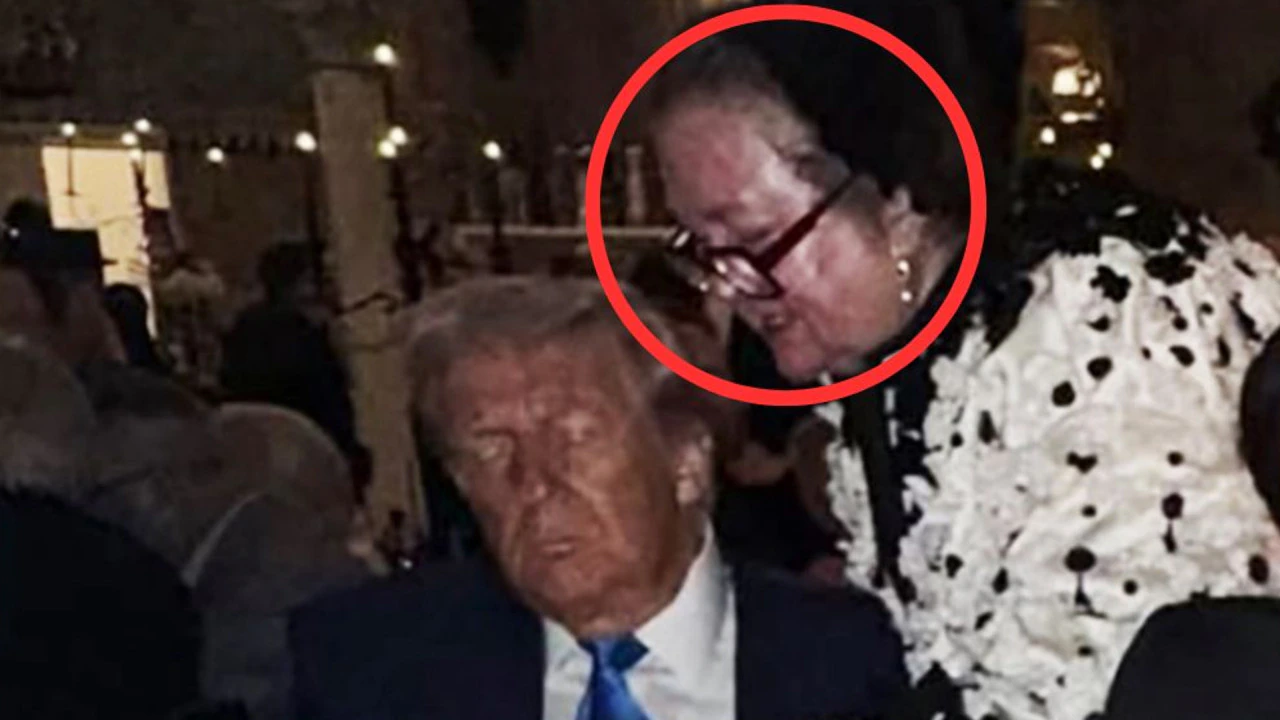Copyright theaustralian

Read Today's PaperMind Games 6:07PMTuesday, November 11th, 2025 The Australian Plus Subscribe sale The Australian Plus benefits The Australian app Newsletters My comments Saved stories Latest News Indigenous affairs Political commentary All Business Margin Call Legal Affairs CFO Journal Tech Journal The Growth Agenda Personal Finance Superannuation Property Investing Mental Health Relationships All Commentary Feeding the chooks Combat Sport Horse Racing Rugby Union Visual Arts Luxury and Lifestyle Luxury and Lifestyle All Life & Luxury Food & Drink All Magazine Flight Reviews Today's Paper Special Reports Special Reports Back Australia Energy Nation Women in education Shaping Australia Boarding Schools Guide Independent Schools Report Research Magazine Defence Research Indo-Pacific Our Journalists The Australian Wine Subscription Help Subscription Help Goal of total victory cost Gough total defeat Gough Whitlam addresses the crowds from the steps of Parliament House, Canberra, after his dismissal by Sir John Kerr. Picture: National Archives. Gift this article 4 minutes ago The Dismissal is endlessly fascinating for its insights into human nature under pressure, the bedlam because there were no accepted ground rules for a prime minister’s dismissal by the Crown and for a story that will be forever exploited by phony conspiracy theorists. Here are three little-known or long-forgotten factors in the saga. First, why did Gough Whitlam go home for lunch after being dismissed? He was shocked and the homing instinct came to the fore. But it was a serious political blunder. Gough always had a big appetite but that won’t suffice as an explanation. I have always suspected there was another reason. Whitlam didn’t know Malcolm Fraser was already the prime minister. This is one of the bizarre aspects of the day. Whitlam was dismissed by Sir John Kerr at Yarralumla about 1pm and promptly left. He didn’t know Fraser was already at Yarralumla and was sworn in as prime minister with a caretaker commission about 1.10pm when Whitlam was still in his departure car. Why ‘shy’ Gough was blindsided by the Dismissal 50 years ago today, an Australian governor-general sacked the Prime Minister. A new book reveals something about Gough Whitlam’s character that might explain why the PM didn’t see the ambush coming. You can read more about this story, plus see photos, videos and additional reporting, on the website or on The Australian’s app. This episode of The Front is presented and produced by Claire Harvey and edited by Lia Tsamoglou. and our team includes Kristen Amiet, Tiffany Dimmack, Joshua Burton, Stephanie Coombes and Jasper Leak, who also composed our music. Why ‘shy’ Gough was blindsided by the Dismissal Whitlam was playing catch-up all afternoon. He didn’t know Fraser was PM and had no knowledge of the terms of Fraser’s commission. If Whitlam had known, things may have been very different. Fraser arrived back at Parliament House as PM about 1.25pm and immediately set in train events to deliver his commission, notably talking to Liberal Senate leader Reg Withers about securing supply for the Fraser government. The juxtaposition is almost crazy. Whitlam having a steak while summoning Labor people to The Lodge, while Fraser is busy at Parliament House ensuring the change of government will be a success. Whitlam had no contingency plan for a dismissal. No fallback, nothing. And he had stranded himself at The Lodge during the decisive hour post-dismissal. If Whitlam had known Fraser was already PM he surely would have gone immediately to Parliament House to confer with ministers and advisers. In that scenario it is most likely Labor’s Senate leaders would have been informed of the dismissal. Instead, when the Senate resumed at 2pm Labor senators still knew nothing and Withers secured supply. Over lunch, Whitlam wrote out his resolution to put to the House. That resolution declared “confidence” in the Whitlam government and said “if” the governor-general “purports” to commission Fraser then the House would not have confidence in his government. In short, Labor was framing its tactics unaware that Fraser was PM. Whitlam missed his mission: at that point it was not to defend the deposed Whitlam government but to undermine the Fraser government by delaying Fraser’s ability to get the supply bills through the Senate. Malcolm Fraser, Sir John Kerr and Doug Anthony in November, 1975. My second forgotten aspect concerns Whitlam’s failure to accept the compromise victory in early November that Fraser offered him. This is a very unpopular view among Labor people. But it is a pivotal event in Whitlam’s misunderstanding of the crisis. On November 2, Fraser, under pressure because of public hostility to the blocking of supply, chaired a summit of conservative leaders, including state premiers, in Melbourne. The upshot was a communique that supported the opposition’s stance but gave Fraser a more conciliatory image. The summit decided to pass supply provided Whitlam agreed to advise a House of Representatives election before mid-1976 when the next half-Senate election was due. The purpose was to cast Fraser as a reasonable man; the risk was that the concession would make him look weak. Fraser suspected Whitlam would interpret the concession as evidence the opposition was starting to crumble. And this is exactly what Whitlam concluded. Fraser took his compromise proposal to the governor-general on November 3 after clearing it though shadow cabinet. Fraser told Kerr that if Whitlam rejected the offer the opposition would stand firm on its rejection of the supply bills. They would not surrender. When Kerr put the compromise to Whitlam, he rejected it immediately. In truth, this was a very substantial concession. Consider what it meant. It meant the budget would pass immediately. There would be no general election. Whitlam would have achieved his goal – in denying Fraser a pre-Christmas poll. Whitlam would depict himself as the winner from the deadlock. He would spend Christmas at Kirribilli House planning Labor’s tactical revival in early 1976 with Bill Hayden as treasurer and the chance to improve the government’s stocks. There had to be a half-Senate election by mid-1976 anyway and that meant a double-dissolution election before mid-1976 was always a likely step for Whitlam. So Fraser was offering a concession Whitlam was likely to adopt anyway. Even if Whitlam chose the bizarre option of going to the half-Senate election and then a double dissolution in late 1976, it would mean a term only six months longer than Fraser was offering him in the compromise. Reg Withers told me: “Of course Whitlam should have taken the deal. He would have bought time with a better-looking government.” Kerr wrote that Whitlam was adamant when he rejected the offer. This leads directly to the critical point: for Whitlam, only total victory would suffice. This is the key to Whitlam’s defeat. He had the chance to prevail over Fraser in denying any immediate election. But that wasn’t enough – Whitlam had far bigger goals that he repeatedly made public. He wanted to smash the Senate’s power over supply for all time – in effect, to alter the power balance between the House and the Senate and impose a de facto constitutional change on the system of government. Whitlam wanted an unqualified victory that meant no opposition in future would ever thinking of blocking supply again. Beyond that, he wanted a victory that would discredit the opposition and stain Fraser’s leadership beyond recovery – the sort of victory that could transform the existing political equation. SUBSCRIBER ONLY This video is available for subscribers only. Subscribe or log in to watch. Power & Principle: The untold Dismissal story In a gripping and humorous account, journalist Paul Kelly returns to Canberra to reveal his untold story... Given his objectives – smashing both the Senate and Fraser – it made sense for Whitlam to rebuff Fraser’s offer. Yet it was a massive gamble. More than ever, he needed to be sure of Kerr. Whitlam was now rejecting the offer of a tactical victory in the cause of total victory. Yet he misread Kerr and underestimated Fraser. Fraser’s offer was tactical – it wasn’t a sign of weakness at all. Talking to Whitlam’s office at the time, I suggested it made sense to end the crisis on these terms. But I was thoroughly disabused. The office sensed a Labor triumph for the ages, the ultimate “crash through” win in Whitlam’s career. Gough went for total victory but the cost was total defeat. The third issue is the chronic claim that the CIA was really behind the dismissal, an allegation too exciting to ever die. Margaret Whitlam once said that while Gough didn’t believe it, “I’m prepared to believe it”. The point is it’s too thrilling not to believe it. There was a profound crisis in Australian-American security relations at the time. On November 10, one of the most dramatic cables in our history was sent from the ASIO liaison officer in Washington to ASIO headquarters here based on a briefing a senior CIA officer, Ted Shackleton, had provided. I read this cable in early 1976. The CIA feared the public debate initiated by Whitlam threatened to “blow the lid” off the US bases in this country, notably Pine Gap and that the revelation of the CIA’s role at Pine Gap would destroy intelligence relations between the two nations. The famous Defence Department chief, Sir Arthur Tange, told a Whitlam staffer that “this is the gravest risk to the nation’s security there has ever been”. An entire industry has been built on the security crisis attempting to tie it to the Dismissal. Sadly, for its advocates, there has been no evidence establishing this nexus in half a century. The lesson is that correlation is not causation. Tange privately and publicly denied the spurious claims he had briefed Kerr or authorised briefings of Kerr on the crisis. Kerr, interviewed by Gerard Henderson, got upset that people might think the CIA put him up to it: “I sacked Whitlam, nobody else inspired me to do it.” The Americans were alarmed by Whitlam. But the many hundreds of pages of Kerr’s notes, diaries and memoirs make clear he was too busy with a constitutional crisis to worry about a security crisis. There was no link. But don’t think conspiracists will ever stop their chatter. More Coverage Whitlam changed us forever: Bob Carr A 50-year regret: how Labor could have saved Whitlam TROY BRAMSTON ‘Partisan ambush’: PM fights for Whitlam in scorching speech GEOFF CHAMBERS, RICHARD FERGUSON Aide spills the beans on totally silent exits after dismissal TROY BRAMSTON Paul KellyEditor-At-Large Paul Kelly is Editor-at-Large on The Australian. He was previously Editor-in-Chief of the paper and he writes on Australian politics, public policy and international affairs. Paul has covered Australian governments from Gough Whitlam to Anthony Albanese. He is a regular television commentator and the author and co-author of twelve booksbooks including The End of Certainty on the politics and economics of the 1980s. His recent books include Triumph and Demise on the Rudd-Gillard era and The March of Patriots which offers a re-interpretation of Paul Keating and John Howard in office. Decorated ex-soldier’s dire defence warning to PM The outgoing RSL president has stunned Anthony Albanese with an extraordinary Remembrance Day rebuke over Australia’s defence spending and preparedness. Jamie Walker China's economy is a ticking time bomb for Australia Renowned China economist Michael Pettis warns China’s debt and trade surplus is a danger for Australian real estate and commodities. Matthew Cranston ‘Crikey, dick!’ Terrifyingly easy way crime gangs import illegal tobacco Customs brokers have blown the whistle on multimillion-dollar tobacco smuggling schemes using legitimate business names, with fears some officials may be turning a blind eye. Matthew Cranston Margin Call Carr under fire over Jewish lobby remarks Bob Carr’s remarks about the Jewish lobby have drawn an awkward silence from the Minns government. YONI BASHAN Higher Education Chaotic new uni that few wanted may be a blueprint for future Two universities will vanish next month to create one mega-institution, but exhausted staff fear the rushed transformation could lead to chaos. STEPHEN MATCHETT AFL young gun’s rape case dropped after witness admits to lying Geelong footballer Tanner Bruhn says he is hopeful for the future and glad to put a court ‘nightmare’ behind him after rape charges were dropped. Liam Beatty Join the conversation (0 Comments) Add your comment to this story To join the conversation, please log in. Don't have an account? Join the conversation, you are commenting as More related stories Legal rights threatened by campus injustice Lurking beneath fine intentions to reduce the incidence of gender-based violence in higher education is the codified vigilante justice of zealots. Property Investing The hidden factor driving home prices and a property gridlock Buoyant housing markets should see sellers lining up to offload their homes but they are not coming to the party. Subscribe sale About The Australian Our journalists Today’s paper Standards of Practice Editorial code of conduct Subscribe to the Australian Subscription terms Subscribe to Newsletters The Australian Plus membership Get support Subscription Help Copyright & licensing Advertise with us OUR NETWORK The Wall Street Journal The Australian Wine A NOTE ABOUT RELEVANT ADVERTISING: We collect information about the content (including ads) you use across this site and use it to make both advertising and content more relevant to you on our network and other sites. Find out more about our policy and your choices, including how to opt-out.Sometimes our articles will try to help you find the right product at the right price. We may receive payment from third parties for publishing this content or when you make a purchase through the links on our sites. Privacy policy Relevant ads opt-out Cookie policy Terms of use Nationwide News Pty Ltd © 2025. All times AEDT (GMT +11). Powered by WordPress.com VIP Would you like to gift this article? Article gifting is only available to The Australian Subscribers. Subscribe or login to share this article. Oops An Error has occurred {"isTrusted":true}



